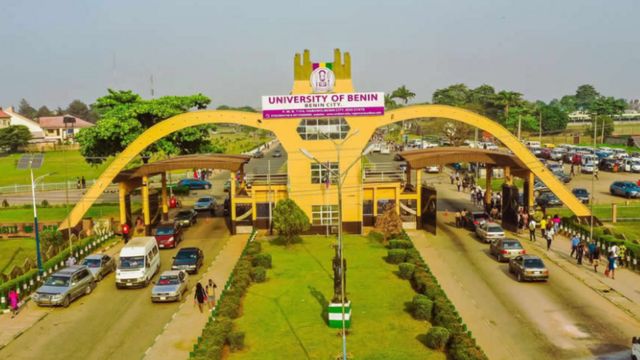The University of Benin (UNIBEN) has launched a practical vocational training initiative to equip students with hands-on technical skills in automobile servicing and maintenance.
The announcement was made on Wednesday in Benin by the university’s Public Relations Officer, Dr. Benedicta Ehanire.
Dr. Ehanire quoted the Vice-Chancellor, Prof. Edoba Omoregie, saying the initiative, organised under the University’s Vocational and Technical Training Programme (VTTP), is part of his strategic reforms.
The programme, titled “Fundamentals of Automobile Service and Periodic Maintenance Training Programme,” is designed to position UNIBEN as a centre for capacity building and vocational excellence.
Prof. Omoregie explained that the programme aligns with one of the pillars of his Five-Point Agenda, which seeks to transform UNIBEN into a hub for skill acquisition and employability training.
“The future of higher education in Nigeria lies in skill integration, where academic learning is complemented by vocational and technical training,” he said. “This initiative empowers students with practical skills, entrepreneurial drive, and the mindset to become job creators rather than job seekers.”
The Vice-Chancellor added that the programme bridges the gap between theory and practice in engineering education while aligning with global best practices in experiential learning.
In the first phase, undergraduate engineering students will receive hands-on instruction in automobile diagnostics, servicing, and periodic maintenance from industry professionals and technical experts.
Prof. Omoregie emphasized that the initiative underscores UNIBEN’s commitment to producing graduates who are both academically sound and technically competent.
Coordinator of the VTTP, Prof. Andrew Amenaghawon, praised the Vice-Chancellor’s forward-looking leadership, describing the programme as “a bold step toward repositioning the University of Benin as a leader in technical and vocational education.”
“This programme is not just about learning how to fix cars. It empowers students with practical knowledge that adds real value, enhances employability, and fosters self-reliance,” Prof. Amenaghawon said.


